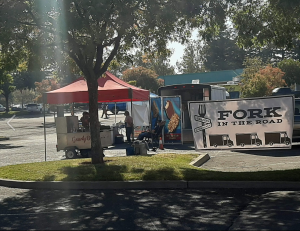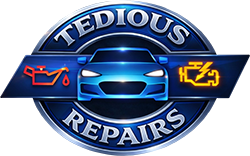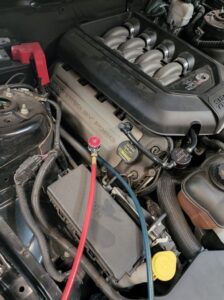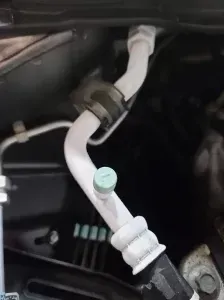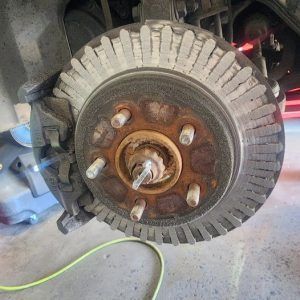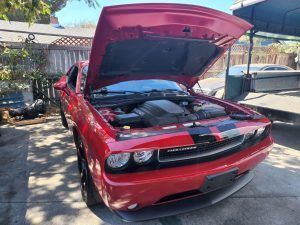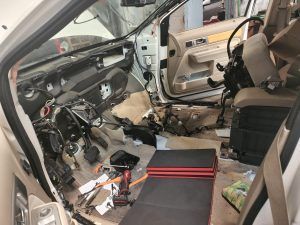Debunking Common Myths About Car Brake Repair
Are you aware of the common myths surrounding car brake repair? It is essential to understand the truth behind these myths to ensure your safety and the longevity of your vehicle.
In this article, we will debunk some of the most prevalent misconceptions about brake repair.
Firstly, many people believe that noise always indicates brake replacement. While unusual sounds can indicate that your brakes require attention, it is not always necessary to replace them. The noise could be due to other issues, such as worn suspension or steering components.
Therefore, it is crucial to have a professional mechanic inspect your brakes to identify the source of the problem and recommend the necessary repairs. Understanding this myth will save you from spending money on unnecessary brake replacements and ensure your car is safe to drive.
Key Takeaways
– Professional inspection is crucial for identifying brake problems and recommending necessary repairs.
– Regular brake maintenance can prevent excessive noise and extend the lifespan of brakes.
– Choosing the right brake pad for driving needs and matching it to the vehicle model can ensure safe and effective braking.
– DIY brake repair is risky and can lead to incorrect diagnosis, safety risks, and warranty concerns.
Myth: Noise Always Indicates Brake Replacement
Contrary to popular belief, the presence of noise does not always necessitate the replacement of your car’s brakes. While it’s true that brake noise can be a sign of wear and tear, it can also be caused by a number of other factors.
For example, dust and debris can accumulate on your brakes over time, leading to a squeaking or grinding sound. Even weather conditions, such as humidity or extreme temperatures, can affect the noise level of your brakes.
This is why it’s important to not jump to conclusions when you hear noise coming from your brakes. Instead, take your car to a trusted mechanic who can diagnose the issue and recommend the appropriate course of action.
In some cases, the solution may be as simple as a thorough cleaning or adjustment of your brakes. In other cases, you may need to replace certain components, such as brake pads or rotors. The key is to address the issue as soon as possible to prevent further damage and ensure the safety of yourself and others on the road.
Regular brake maintenance is also crucial in preventing excessive noise and extending the lifespan of your brakes. This includes getting your brakes inspected and serviced regularly, as well as following good driving habits such as avoiding sudden stops and not riding your brakes. By taking these steps, you can not only reduce the likelihood of brake noise, but also save money in the long run by avoiding costly repairs and replacements.
Despite what some may believe, brake pads don’t last forever. In the next section, we’ll debunk this common myth and explain why it’s important to keep an eye on the wear and tear of your brakes.
Myth: Brake Pads Last Forever
You may think that your brake pads don’t need replacing, but let me tell you, they won’t last forever. Brake pads have a limited lifespan and will eventually wear down over time, depending on factors such as driving habits, road conditions, and the quality of the brake pads.
It’s important to understand the typical brake pad lifespan to avoid potential safety hazards and costly repairs down the road. To give you a better idea of how long brake pads typically last, here are some general guidelines:
– The average lifespan of brake pads is around 50,000 miles, but this can vary depending on driving conditions and habits.
– Brake pads have built-in wear indicators that make a high-pitched squeaking noise when they’re worn down to a certain point, typically around 2-3mm.
It’s important to have your brake pads inspected regularly by a professional mechanic to ensure they’re in good condition and haven’t worn down beyond their recommended lifespan.
Understanding the lifespan of your brake pads can help you avoid potential safety hazards and costly repairs. Pay attention to the built-in wear indicators and have your brake pads inspected regularly by a professional mechanic. Next, we’ll discuss the myth that all brake pads are the same, which is another common misconception that can lead to potential safety hazards and costly repairs.
Myth: All Brake Pads are the Same
When it comes to brake pads, don’t be fooled by the idea that they’re all created equal. Brake pads differ in material composition, and each type has its own unique characteristics.
Organic brake pads are made of materials like rubber and glass, and they’re a popular choice for everyday drivers. Semi-metallic brake pads, on the other hand, contain materials like steel and copper, making them ideal for high-performance driving. It’s important to choose a brake pad that suits your driving needs and matches your vehicle model.
One of the key factors to consider when choosing a brake pad is the material composition. Organic brake pads are softer and quieter, but they tend to wear down faster than the other types. Semi-metallic brake pads are more durable and can handle higher temperatures, but they’re noisier and may produce more dust. Ceramic brake pads offer excellent performance and longevity, but they’re more expensive than the other types. It’s important to compare the pros and cons of each material and choose the one that best fits your driving style and budget.
Another important factor to consider is matching the brake pads to your vehicle model. Each car has its own specific brake pad requirements, and it’s important to choose the right one for your vehicle. Using the wrong brake pad can lead to reduced stopping power, uneven wear, and even damage to your car’s braking system. Always consult your vehicle owner’s manual or a professional mechanic to ensure that you’re using the correct brake pads for your car.
When it comes to brake pads, it’s important to understand that they’re not all the same. Brake pads differ in material composition, and each type has its own strengths and weaknesses. Choosing the right brake pad for your driving needs and matching it to your vehicle model can help ensure safe and effective braking.
Now, let’s move on to the next topic: “Myth: DIY brake repair is easy and cost-effective.”
Myth: DIY Brake Repair is Easy and Cost-Effective
If you’re considering doing your own brake repairs, it’s important to understand the risks involved and the potential consequences of a mistake. While DIY projects can be a great way to save money, brake repair is not a task that should be taken lightly.
Here are four reasons why attempting your own brake repair can be risky:
1. Lack of professional expertise: Brake systems are complex and require specialized knowledge and tools to repair properly. Without the necessary training and experience, it’s easy to make mistakes that can compromise your safety on the road.
2. Incorrect diagnosis: Brake issues can have many different causes, and it can be difficult to diagnose the problem without the right tools and expertise. Without a proper diagnosis, you may end up replacing parts that didn’t need to be replaced, or missing the root cause of the problem altogether.
3. Safety risks: Brakes are one of the most critical safety systems in your vehicle. If you make a mistake during the repair process, you could compromise the effectiveness of your brakes and put yourself and others at risk.
4. Warranty concerns: If you attempt to repair your brakes on your own, you may inadvertently void your vehicle’s warranty. This could result in costly repairs down the road if something goes wrong.
It’s clear that DIY brake repair comes with a number of risks and potential pitfalls. To ensure your safety and the long-term health of your vehicle, it’s best to leave brake repair to the professionals. With their expertise and specialized tools, they can diagnose and repair brake issues quickly and effectively. And, by having your brakes serviced regularly, you can catch any potential problems before they become major issues.
Speaking of which, let’s move on to the next myth: brake repair can wait.
Myth: Brake Repair Can Wait
Sometimes we put off necessary repairs, but neglecting your vehicle’s brakes can have serious consequences. Regular brake maintenance is necessary to ensure that your car’s brakes are functioning properly. Waiting too long to repair your brakes can lead to expensive repairs and even accidents.
Regular brake maintenance is essential to keep your car safe and prevent costly repairs. Brake pads, rotors, and calipers wear out over time, and neglecting to replace them can lead to brake failure. Signs that indicate immediate brake repair include a squeaking or grinding noise when you apply the brakes, a spongy or soft brake pedal, or a vibration in your steering wheel when braking.
Don’t wait until it’s too late to repair your brakes. If you notice any of these signs, take your car to a certified mechanic immediately. Remember, your brakes are one of the most important safety features on your car. Regular brake maintenance will not only keep you and your passengers safe, but it’ll also save you money in the long run by preventing costly repairs.
Frequently Asked Questions
How often should brake pads be replaced?
Brake pad lifespan varies depending on factors such as driving habits, road conditions, and vehicle weight. Generally, they should be replaced every 50,000 miles or when the thickness is less than 1/4 inch.
What are the signs of worn brake pads besides noise?
To check for worn brake pads, visually inspect them for thickness. If they’re less than 1/4 inch thick, replace them immediately. Also, look for brake dust on the wheels as a sign of wear.
Are there different types of brake pads for different types of vehicles?
Yes, there are different types of brake pads for different types of vehicles. Compatibility depends on factors like weight and driving conditions. Material and durability also vary, with ceramic pads offering longer life but higher cost.
What are the risks of attempting DIY brake repair?
Attempting DIY brake repair poses serious safety concerns and risks. Without proper knowledge and tools, you may damage the brake system or put your life at risk. Always consult with a professional mechanic for brake repair.
What are the consequences of delaying brake repair?
Delaying brake repair can lead to severe consequences such as accidents, loss of control, and damage to other vehicle parts. Safety risks increase as worn brake pads and rotors can cause longer stopping distances and overheating, leading to brake failure.
Conclusion
In conclusion, it’s important to debunk common myths about car brake repair to ensure the safety of yourself and others on the road.
Remember that noise doesn’t always indicate the need for brake replacement, and that brake pads don’t last forever.
It’s also important to understand that not all brake pads are the same, and that DIY brake repair may not always be easy or cost-effective.
Furthermore, it’s crucial to prioritize brake repair and not wait until it’s too late. Ignoring brake issues can lead to more expensive and dangerous problems down the line.
Always consult with a professional mechanic and follow manufacturer recommendations for brake maintenance and replacement.
By understanding the truth behind these common myths, you can make informed decisions about your car’s brake system and ensure a safe driving experience.
